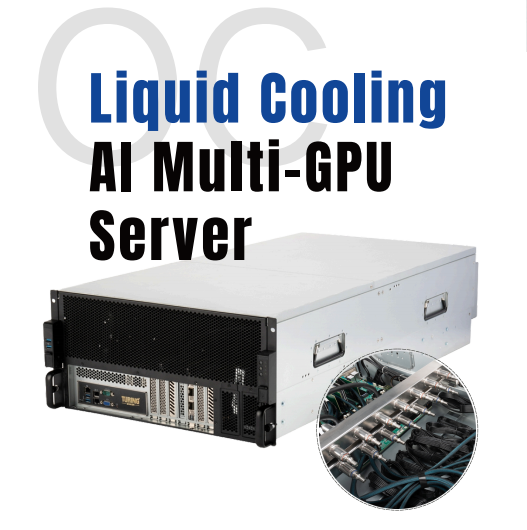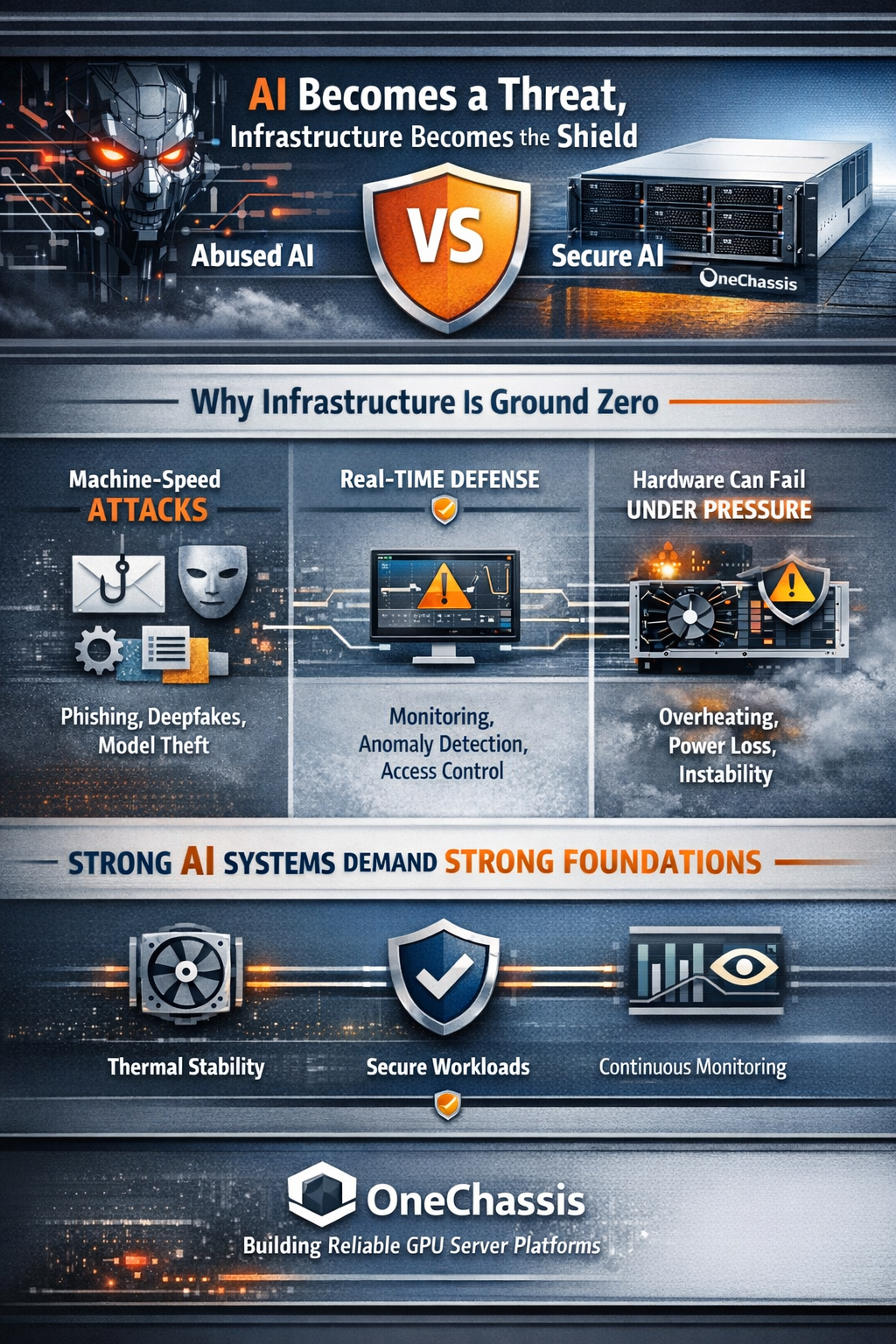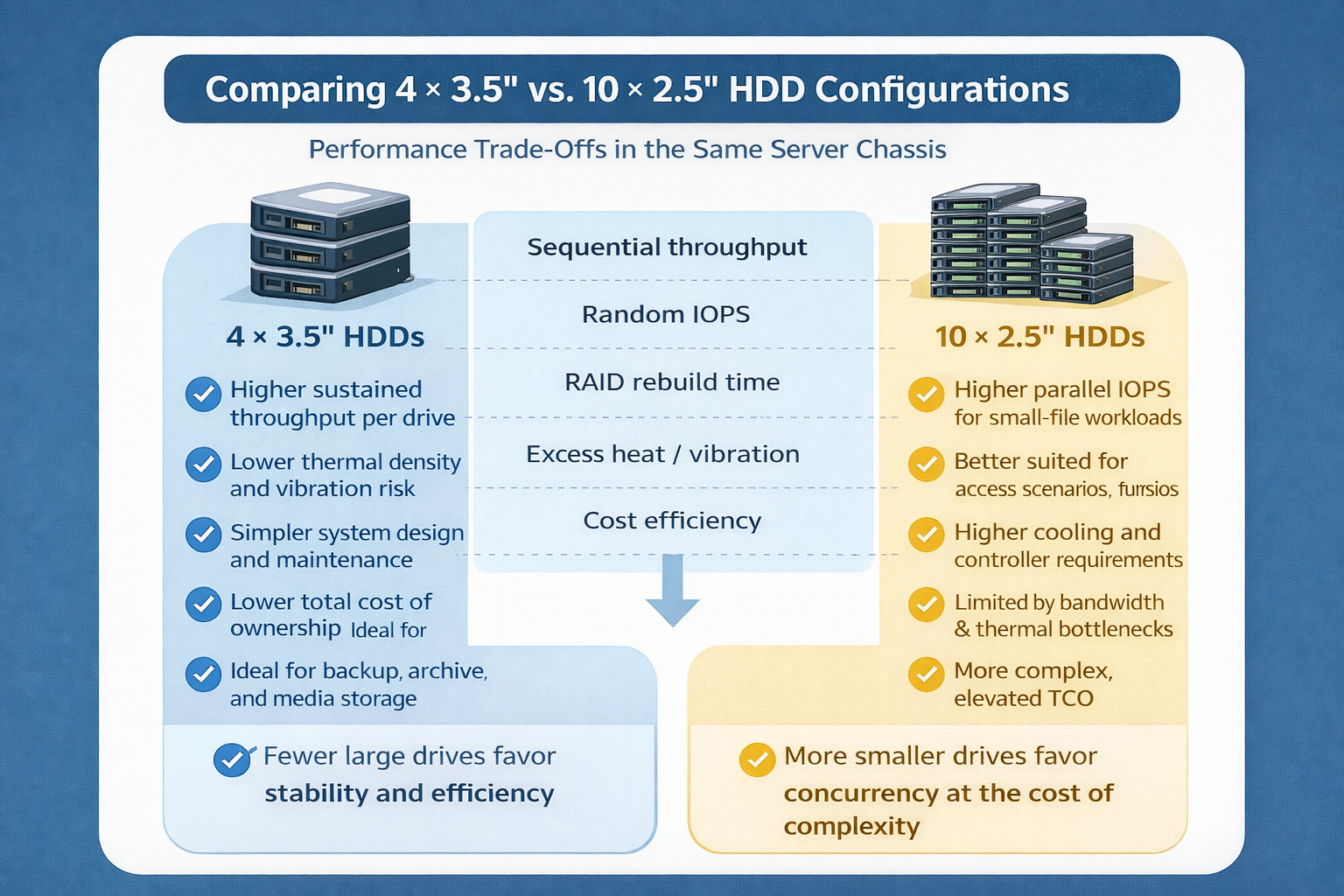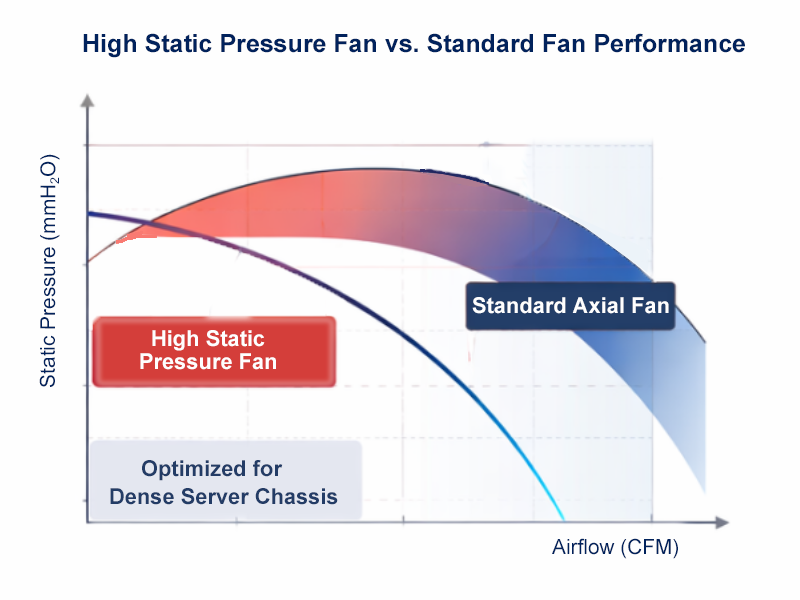Inevitable Liquid-Cooled System
Liquid-cooled industrial chassis are becoming essential in modern industrial computing where high-density CPUs and GPUs generate extreme heat. Unlike traditional air-cooled industrial PC chassis, liquid cooling provides superior thermal efficiency, quieter operation, and better stability for 24/7 mission-critical workloads. This makes liquid-cooled IPC systems ideal for edge AI servers, machine-vision control units, robotics computing, industrial automation, and high-performance industrial servers deployed in harsh or confined environments.

Application Scenarios for Liquid-Cooled Industrial Chassis
In the industrial computing space, liquid
cooling (or “water cooling”) for IPCs and server chassis is becoming
increasingly important:
- High-Performance AI/Compute at the Edge
Industrial AI servers that host multiple high-power GPUs or AI accelerators generate very high heat density. Liquid-cooled industrial chassis (e.g., with cold-plate cooling) can efficiently extract that heat, enabling stable 24/7 operation in edge data centers, smart factories, or robotics control rooms. This meets rising AI compute demand while maintaining reliability. - Data Center / High-Density Computing Frames
In data centers or industrial server farms, chassis-level liquid cooling (such as cold-plate or immersion cooling) can significantly reduce the thermal load on the rack, helping to lower Power Usage Effectiveness (PUE). For example, in high-density computing clusters, nearly all heat can be removed by liquid – one cold-plate system design achieves ~95% of heat captured via direct liquid contact, minimizing reliance on air cooling.
- Hot-Water Energy Reuse in HPC / Industrial Clusters
Projects like iDataCool have used liquid-cooled clusters with hot-water cooling, recovering waste heat to drive systems like adsorption chillers or for facility heating. In industrial contexts, such a design can allow reusing heat from compute units (e.g., in a smart factory) to power other thermal systems, improving energy efficiency.
- Industrial Power Electronics & Control Cabinets
Industrial control cabinets (e.g., for power converters, PLCs, inverters) often house high-power electronics. Liquid cooling can be combined with these cabinets to remove concentrated heat efficiently, reduce temperature fluctuations, and improve reliability — especially in environments with limited airflow. - Energy Storage Systems & Battery Management
Liquid cooling is also prominent in energy systems (though not exactly the “IPC-chassis” itself): for example, in large containerized energy storage, liquid systems can maintain tight temperature control (± 2 °C) across battery packs. While this is not exactly a computer chassis, the same industrial liquid cooling components (pumps, cold plates, manifolds) are shared in IPC cooling systems.
- AI / Data Center Pump Systems
As AI server power density increases (per-node power rising sharply), more data centers are choosing full liquid cooling loops. Liquid cooling pumps (e.g., industrial DCP-series) are being used to circulate coolant in compute racks or chassis. This supports high heat load systems in a stable, efficient way.
Advantages of Liquid Cooling vs. Air
Cooling
- Lower Noise: Because much of the
heat is carried away by a liquid loop rather than being pushed out by
high-speed fans, liquid-cooled systems can run much quieter — a
significant benefit in control rooms or edge computing environments.
- Better Thermal Efficiency: Liquid
has much higher heat capacity than air, meaning it can absorb and carry
away more heat per unit volume.
- Higher Power Density Support: As
compute modules (CPUs/GPUs) get more powerful and dense, air cooling
struggles. Liquid cooling (cold-plate, immersion, etc.) supports much
higher power density.
- Energy Reuse: Liquid cooling
enables more effective waste heat recovery (e.g., in hot-water cooling)
and can feed back into building heating, HVAC, or other systems.
- Improved Reliability: More stable thermal environment reduces thermal stress on components, potentially increasing longevity and reducing failure risk.
 When AI Becomes A Threat, Infrastructure Becomes the Front Line
When AI Becomes A Threat, Infrastructure Becomes the Front Line
 Storage Density Choices in the Same Server Chassis
Storage Density Choices in the Same Server Chassis
 Welcoming 2026: Building the Next Year of AI Infrastructure Together
Welcoming 2026: Building the Next Year of AI Infrastructure Together
 How We Design Thermal Paths: Airflow, Static Pressure & Fan Zones
How We Design Thermal Paths: Airflow, Static Pressure & Fan Zones

